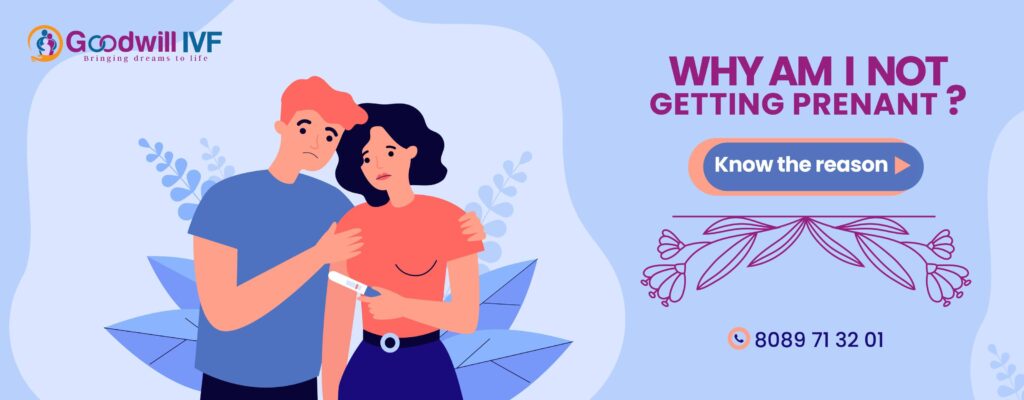Infertility is the incompetence of a couple to conceive and reproduce.
About 85% of healthy couples achieve pregnancy by unprotected intercourse, within a year. Those who are unable to conceive for a year, need to be evaluated for medical problems related to infertility.
There are mild, moderate, and severe cases of infertility. Infertility treatment depends on its underlying cause.
There are several infertility treatments. Although IVF is the most successful fertility treatment available today, with better success rates, it is not the only option for infertility. You can take several other treatment paths.
These are the treatment methods you can pursue infertility:
Ovulation Induction
Infertility can be treated using fertility drugs, which are hormones that help stimulate ovulation or the release of an egg from the ovary.
The treatment is effective for those women who ovulate infrequently or do not ovulate at all.
Women suffering from Polycystic Ovarian Syndrome (PCOS), a hormonal issue that prevents ovulation, can opt for this technique. Women who have defects in ovulation that are not very obvious are also treated by this method. These drugs may induce 2-3 eggs to mature. As a result, the efficiency and quantity of ovulation are enhanced, leading to higher pregnancy rates.
Ovulation induction is combined with Intrauterine Insemination in ovulatory women.
A complete and thorough examination should be conducted before ovulation induction. All hormonal disorders should be rectified.
Surgical Procedures
Fallopian tube surgery is used to repair blocked or scarred fallopian tubes, the success of which depends on the extent of damage to your fallopian tubes.
Laparoscopic surgery is used to treat endometriosis, submucosal fibroids, and PCOS.
Surgery can be used to correct the blockage of the epididymis, the coil-like structure in testicles that helps store and transport sperm.
Surgical extraction of sperm is an option if sperm is not released due to any obstruction, or if you had a vasectomy.
Assisted Conception
Intrauterine Insemination (IUI) and In Vitro Fertilization (IVF) are two methods of assisted conception.
Intrauterine Insemination
Intrauterine Insemination, also called Artificial Insemination is beneficial for men who have mild problems like sperm motility.
During the IUI treatment, sperm is first collected and washed in a fluid and the best quality specimens are collected. Then, they are inserted into the womb through a thin plastic tube passed through the cervix, at the time of ovulation.
IUI is successful for couples who have mild infertility, meaning who have had trouble conceiving a child through natural means. Couples under 35, who have had unprotected sex for up to one year and those over 35, for six months, are the best candidates for IUI. It is considered the first line of treatment for most cases of infertility.
In Vitro Fertilization
IVF is the most effective form of Assisted Reproductive Technology and it is the final fertility treatment, which is highly advanced, medically and technologically. In IVF, the egg is fertilized outside the body which is then transferred to the uterus.
First, ovary stimulating hormones are used to stimulate the ovaries to produce multiple eggs.
The next step, called egg retrieval, is done about 10-12 days later when the eggs are removed from the follicles and immediately afterward, the mature eggs are mixed with your partner’s healthy sperm and incubated overnight.
When the fertilized eggs (embryos) are mature, they are tested for genetic diseases or the correct number of chromosomes.
Several weeks later, one chromosomally normal embryo is transferred into the uterus using a catheter.
If the IVF is successful, one embryo is implanted into the lining of the uterus. This happens 6-10 days after egg retrieval.
After 10 days, a blood test is done to check for a positive pregnancy.
IVF is usually used as the main therapy for infertility in women over the age of 40. IVF is also advised if you or your spouse has health complications such as PCOS, DOR, endometriosis, male factor fertility problems like low sperm count and motility, fallopian tube damage or blockage, ovulation disorders, uterine fibroids, previous tubal sterilization or removal, unexplained fertility, and so on.
So, we can conclude that every patient does not need In Vitro fertilization. You have to discuss with your doctor and decide together which treatment path is right for you.
Goodwill IVF treatment center, the best IVF treatment Center in Kerala, offers basic and advanced infertility treatment services. The fertility specialist diagnoses the infertility issue to determine the underlying medical condition responsible for infertility. Once the diagnosis is done, the fertility specialist may decide the best treatment option for you. The infertility treatment services we offer include Ovulation Induction, Intrauterine Insemination, In Vitro Fertilization,
You must get thoroughly examined for the condition that is causing infertility and opt for the treatment best suited for you. You might not need an IVF. Your treatment is determined by the underlying cause.


